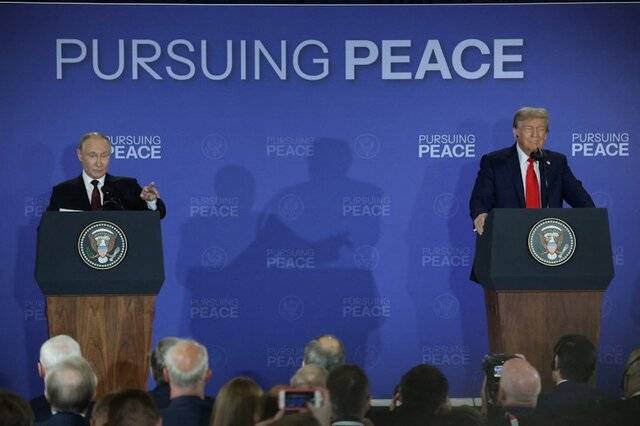2131 Views
From Pariah to Power Broker: The Alaska Summit That Ended Moscow’s Isolation
Following the recent meeting between Trump and Putin in Alaska—held after a prolonged period of heavy sanctions imposed by the United States and Western countries against Russia, and Putin’s persistent resistance to those measures—it has now become evident that this Alaska summit has, in many ways, turned into a symbol of Russia’s diplomatic victory. Putin’s success in achieving his demands has been widely reflected and highlighted across the globe.
The official reception of Putin on American soil, accompanied by military ceremonies and a special red carpet welcome, has in itself been interpreted as the end of efforts to politically isolate Russia and as evidence of the ineffectiveness of sanctions. Russian media, openly expressing satisfaction, have described this event as a prelude to the end of sanctions and pressures against Moscow. At the very moment when the policy of isolating Russia and years of Western attempts—spearheaded by European actors—to sideline Moscow had failed, the Kremlin once again returned to the center of international equations.
The recent Alaska summit between Moscow and Washington demonstrated that this was not merely a diplomatic meeting. The United States, after failing to push Russia out of the political arena, has now been compelled to engage in dialogue with it. At the same time, the Alaska negotiations confirmed that Russia has consolidated its position by relying on domestic resources and capabilities, reducing dependence on the Western-dominated financial system, forging strategic alliances within the framework of a new world order, and refusing to yield under pressure. Russia’s reemergence in international affairs thus signals a shift in the balance of power, proving that sanctions and forced isolation are incapable of containing it.
On the sidelines of the Alaska meeting, discussions reportedly took place about the return of American economic giants and corporations to Russian markets and renewed interactions with Moscow. Talks of resuming economic cooperation and U.S. investments in Russia are viewed as a symbolic marker of the end of the “maximum pressure” campaign. The Alaska negotiations thus seem to represent a major step for Russia in attracting substantial American and Western investment.
It must be emphasized that Russia’s exit from isolation and the holding of this summit carried a crucial message: without Moscow’s participation, none of the global crises—from Ukraine to broader international issues—can be resolved. Western countries and the United States are now forced to acknowledge Russia as a major international actor capable of reshaping the world’s trajectory. This means a shift in the balance of power, a shift that has been achieved through Moscow’s steadfastness against years of Western-imposed sanctions.
This alteration in balance not only strengthens Putin’s domestic position—by returning to the negotiating table with the U.S. president and scoring a major political success that reinforces the narrative of an “unbreakable Russia” in public opinion—but also creates new challenges for Washington’s European allies. The growing closeness between Washington and Moscow has provoked deep concern among European states, particularly in Eastern Europe. From the European perspective, a rapprochement between Trump and Putin could ultimately diminish NATO’s security role and weaken the Western front against Russia. This anxiety has triggered both formal and informal reactions from European officials in recent days, with concerns about NATO’s internal tensions and the impact of the Alaska summit on the alliance’s security. For some European policymakers, Trump’s move has been perceived as a step backward for the United States.
In conclusion, the Alaska summit, while tacitly recognizing Russia’s emergence from isolation, symbolized a broader shift in the global balance of power. This development has stirred deep anxieties in Europe, where policymakers fear that any U.S. concessions will seriously endanger their security. The reason is clear: for years, the European Union has borne enormous costs to sustain its sanctions regime against Russia, only to now find itself gradually sidelined. It must be remembered that the Alaska summit between Russia and the United States was less a practical agreement for lasting peace than a geopolitical—and indeed symbolic—transformation: a shift in the balance of power, a move beyond the traditional Western-centric unipolar order toward a multipolar world where Russia, once again and after many years, emerges as a decisive and undeniable player in the wake of the West’s failure to isolate it.
Translated by Ashraf Hemmati from the original Persian article written by Navid Daneshvar

Comment
Post a comment for this article